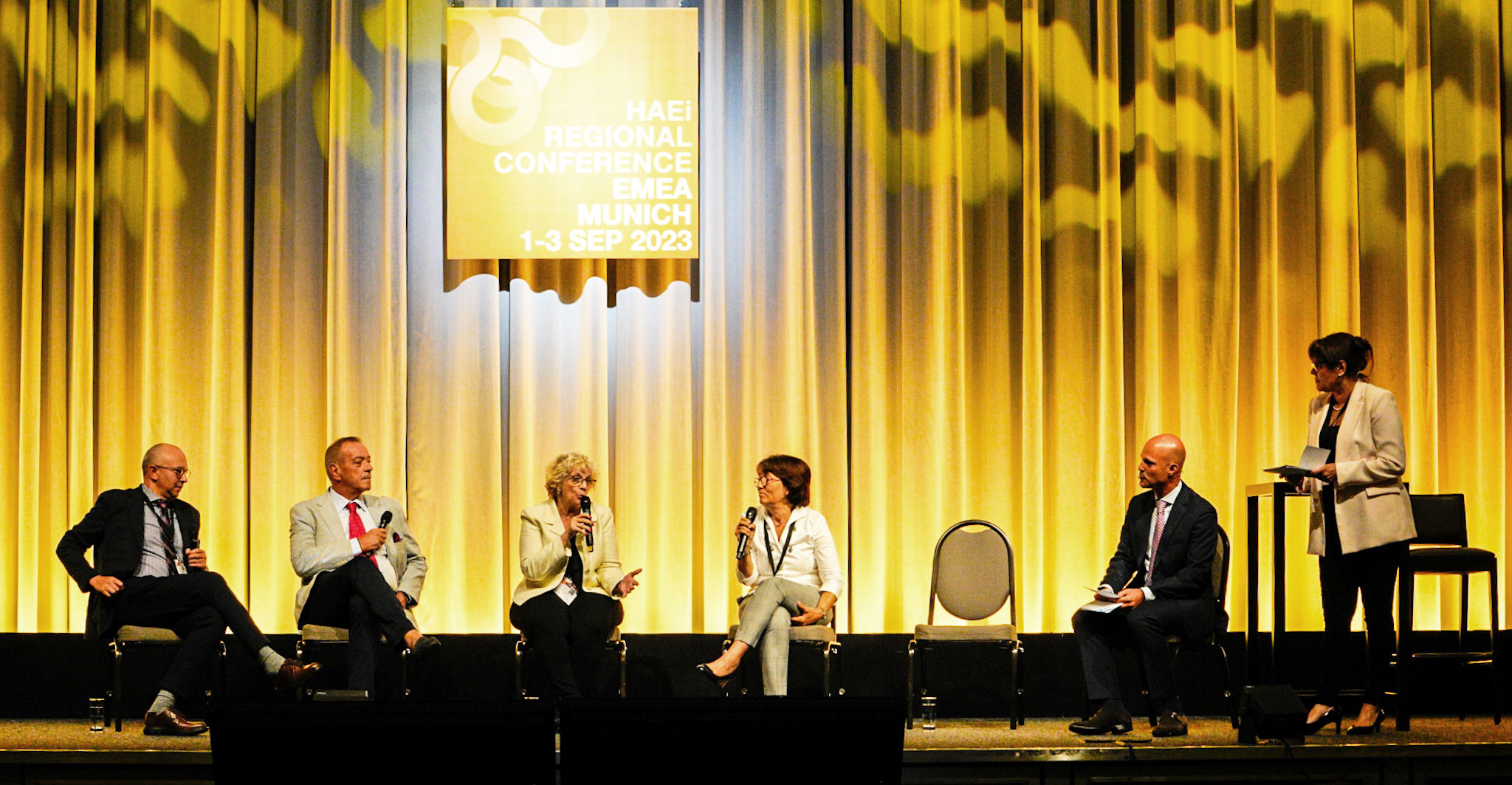
This article is part of an extensive feature on the 2023 HAEi Regional Conference EMEA, published in Global Perspectives #2 2023
Dr. Danny Cohn was joined onstage by Prof. Henriette Farkas, one of the Scientific Committee Co-Chairs along with Dr. Cohn, and the following members of the Scientific Committee: Dr. Isabelle Boccon-Gibod, Dr. Marcin Stobiecki, Dr. Mauro Cancian, and Dr. Teresa Caballero, for the Expert Panel Q&A.
Here we present a few of the questions asked:
Can I play sports with HAE?
The group generally believed that playing sports should be possible, and when undertaken regularly, it could lead to fewer attacks. The panel discussed concerns about contact sports such as karate or rugby. Still, with the advances in on-demand treatment and prophylaxis, the panel recommended playing as much sport as possible to all patients, especially children.
I don’t want my children to have HAE; what should I do?
Speaking from experience in Spain, Dr. Caballero described the possibility of pre-implantation genetic testing to see which embryos don’t have the disease. It is not easy and is not available everywhere, but it can be successful. With the many treatments available, she feels confident that a child with HAE will have a completely different life from its parents.
The panel also highlighted that although a serious disease, HAE does not progress and never causes tissue damage. The recommendation of one panelist was for everybody to have children because of the new treatments. Treated effectively, HAE patients can live a full life.
When should I start my child on preventative medicine?
The panel generally believed it should be a balance of quality of life and number of attacks. If attacks are frequent, long-term prophylaxis is important. The panel also discussed that effective treatments and data for children are still really needed.
Should short-term prophylaxis be used for cosmetic procedures such as Botox, breast implants, tattoos, piercings, etc.?
One panelist suggested being prepared when having tattoos, as there’s some mechanical stress and injury that could trigger an attack. Another felt that anything injected into the lips could provoke a dangerous attack. The general advice was to make sure you have your on-demand treatment available.
Find more feature articles from the 2023 HAEi Regional Conference EMEA:










